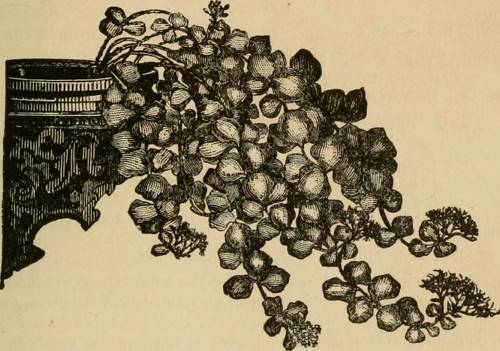
FAQ About Optimizing Indoor Plant Soil Microbiomes

What is a soil microbiome in the context of indoor plants?
The soil microbiome refers to the community of microorganisms, including bacteria, fungi, and viruses, living within the soil surrounding plant roots. In the context of indoor plants, these microorganisms play crucial roles in nutrient cycling, disease suppression, and overall plant health by promoting root growth and improving soil structure.

Why is optimizing the soil microbiome important for indoor plants?
Optimizing the soil microbiome is critical for indoor plants as it enhances nutrient availability, stimulates plant growth, and improves resistance to diseases. A healthy microbiome helps break down organic matter into nutrients that plants can absorb, ensures a balanced ecosystem, and can mitigate stress factors such as drought or pests.

How can I improve the soil microbiome of my indoor plants?
Improving the soil microbiome can be achieved by using organic matter like compost or worm castings, maintaining proper watering practices, and avoiding chemical fertilizers that can harm beneficial microbes. It's also beneficial to introduce microbial inoculants specifically designed to enhance soil health.

Can houseplants survive without a healthy soil microbiome?
While houseplants can survive in less-than-ideal microbial conditions, they will not thrive as well. Lacking a healthy soil microbiome can lead to poor nutrient uptake, increased susceptibility to diseases, and slower overall growth. Ultimately, a robust microbiome supports optimal plant health and vitality.

What are microbial inoculants and how do they benefit indoor plants?
Microbial inoculants are products containing beneficial microorganisms designed to enhance the soil microbiome. They can improve nutrient availability, promote root growth, and increase plant resilience against pathogens. By introducing these microbes into your plant soil, you can boost your indoor plant's health more effectively.

Are chemical fertilizers harmful to the soil microbiome?
Chemical fertilizers can be harmful to the soil microbiome as they may disrupt the natural balance of microorganisms. Overuse can lead to a reduction in microbial diversity and beneficial bacteria. Organic fertilizers and natural soil amendments are generally preferred for maintaining a healthy soil microbiome.

What are some natural ways to fertilize indoor plants that benefit the soil microbiome?
Natural ways to fertilize indoor plants include using compost, worm castings, or homemade organic fertilizers such as banana peel water or crushed eggshells. These provide nutrients while also supporting beneficial microbial growth and diversity in the soil.

How does compost benefit the soil microbiome of indoor plants?
Compost enriches the soil microbiome by adding organic matter and an array of microorganisms that promote nutrient cycling. It improves soil structure and enhances water retention. The diverse microbial community in compost helps create a resilient ecosystem that supports plant health.

What signs indicate a healthy soil microbiome in indoor plants?
A healthy soil microbiome can be indicated by robust plant growth, increased resistance to diseases and pests, and the presence of earthworms or visible fungal networks, like mycelium, in the soil. Healthy plants typically exhibit vibrant foliage and consistent growth patterns.

Can overwatering affect the soil microbiome of my indoor plants?
Yes, overwatering can negatively impact the soil microbiome by creating anaerobic conditions that favor harmful bacteria and fungi, potentially leading to root rot. It's important to ensure proper drainage and allow the soil to dry out between waterings to maintain microbial health.

Are there specific indoor plants known to support a healthy soil microbiome?
Some indoor plants, like ferns, peace lilies, and palms, are known for their ability to support and interact positively with a healthy soil microbiome. These plants often have extensive root systems that nourish beneficial microbes, enhancing soil health and plant resilience.

How do fungi contribute to the soil microbiome of indoor plants?
Fungi play a vital role in the soil microbiome by decomposing organic matter, which releases nutrients that plants can absorb. Mycorrhizal fungi form symbiotic relationships with plant roots, improving nutrient uptake and water absorption, thereby supporting plant growth and health.

What role do bacteria play in the soil microbiome of indoor plants?
Bacteria in the soil microbiome decompose organic matter, fix atmospheric nitrogen into forms plants can use, and suppress harmful pathogens. They contribute to a balanced nutrient cycle, enhancing plant growth and resilience to environmental stresses.

Can air quality affect the soil microbiome of indoor plants?
Air quality can indirectly affect the soil microbiome by influencing plant health. Pollutants can stress plants and alter root exudates, which in turn can impact the microbial community in the soil. Maintaining good air circulation and reducing pollutants help support a healthy microbiome.

How often should I add organic matter to the soil of indoor plants to maintain a healthy microbiome?
Adding organic matter, like compost or worm castings, every few months can help maintain a healthy soil microbiome. The frequency depends on plant type, growth stage, and environmental conditions, but periodic supplementation generally supports ongoing microbial health and nutrient availability.

Can the use of pesticides harm the soil microbiome?
Yes, the use of chemical pesticides can harm the soil microbiome by killing beneficial microorganisms alongside pests. This can lead to reduced microbial diversity and resilience. Using integrated pest management techniques and organic options can mitigate these effects.

How do indoor plant root exudates affect the soil microbiome?
Indoor plant root exudates, comprising sugars, amino acids, and other compounds, serve as food sources for soil microbes. They stimulate microbial activity and diversity, fostering a conducive environment for beneficial organisms that enhance nutrient uptake and plant growth.

What are the challenges of maintaining a healthy soil microbiome indoors?
Challenges include limited space for root expansion, less diverse microbial communities, and fluctuations in humidity and temperature. Indoor environments may also have reduced natural inputs like leaf litter, making it necessary to actively manage and replenish organic matter and microbial diversity.

How does plant diversity affect the soil microbiome in indoor settings?
Increased plant diversity can enhance the soil microbiome by offering a variety of root exudates and habitats for different microbes. This can result in a more resilient and balanced microbial community, improving nutrient cycling and pathogen resistance.

Can introducing outdoor soil into indoor plants benefit the soil microbiome?
Introducing small amounts of outdoor soil can potentially benefit the indoor soil microbiome by adding microbial diversity. However, caution is needed to avoid pests and diseases. Sterilizing the soil first or using commercial microbial inoculants might be advisable.
